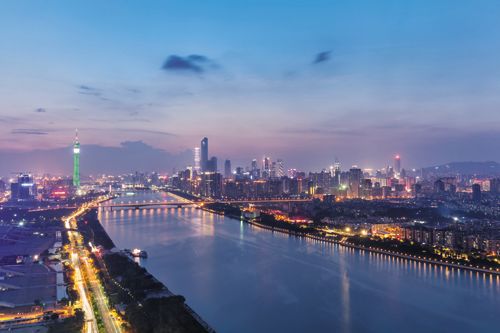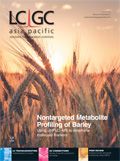The 27th International Symposium on Pharmaceutical and Biomedical Analysis (PBA 2016)
The 27th International Symposium on Pharmaceutical and Biomedical Analysis (PBA 2016) will be held in Guangzhou, China, from 13–16 November 2016.
Photo Credit: Rui Wang/Getty Imgaes

The 27th International Symposium on Pharmaceutical and Biomedical Analysis (PBA 2016) will be held in Guangzhou, China, from 13–16 November 2016.
Since 1987 the PBA has organized symposia all over the world and for the first time in its history the symposium will take place in Guangzhou, China. The symposium will cover all aspects of pharmaceutical and biomedical analysis, including new analytical technologies and methodologies for (bio) pharmaceuticals, biomarkers, and “omics”. A particular emphasis will be placed on natural products, especially traditional Chinese medicines.
The purpose of PBA 2016 is to bring together people from industry, universities, control laboratories, and hospitals to discuss the current status of analytical techniques, including instrumental applications and theoretical developments. The symposium will also host internationally recognized speakers to present plenary and keynote lectures. Selected papers will be presented as oral communications with preference given to poster presentations.
A number of workshops are organized and will focus on topics such as pharmaceutical analysis and how to write a scientific paper. An extensive exhibition of instrumentation, accessories, and supplies will also run in parallel to the scientific programme. In order to encourage scientific exchange and network building, PBA also hosts an attractive programme of social events including a welcome reception, evening banquet, and farewell cocktails.
Abstracts are currently being accepted for consideration for both lectures and posters, and can be submitted on-line at www.pba2016.org/page/386.html. All abstracts will be reviewed on the basis of scientific merit, novelty, and practical application. Presenters at the meeting may also have their work published in a Virtual Special Issue (VSI) of the Journal of Pharmaceutical and Biomedical Analysis, which is dedicated to the PBA 2016.
An award will be given for “The Best Oral Presentation by Young Scientist at PBA 2016” dedicated to the 110th Anniversary of Jinan University, sponsored by Shimadzu. Scientists under the age of 35 will be eligible and the award will be decided based upon lecture presentations at the Young Scientists Session. The winner of the prize will receive a $500 cash award and free registration for the PBA 2017 Symposium to be held in Spain. Ten poster presentation awards will also be given by an international jury of leading experts in the field of pharmaceutical and biomedical analysis. For more information please visit www.pba2016.org/page/381.html.
A sprawling port city located on the banks of the Pearl River, Guangzhou is the economic centre of southern China and one of the most important centres of foreign commerce. As China’s third largest city with a population of 6.7 million, Guangzhou has plenty to offer from a towering commercial metropolis to beautiful and evergreen scenery. Often cited as the birthplace of “Dim Sum”, the city has a worldwide reputation for good food containing more restaurants and teahouses that any other city in China. Guangzhou is a wonderful city and we look forward to welcoming you here in November for PBA 2016!
E-mail:pba2016@hotmail.com • Website:www.pba2016.org

Analysis of PFAS in Milk by LC-MS/MS
May 15th 2025Dairy milk is one commodity that can be impacted by environmental contaminants, such as PFAS, so it is important to implement extensive, robust, and accurate testing. In this work, a sensitive and reliable method was developed for the analysis of PFAS in milk by LC-MS/MS at levels as low as 0.01 µg/kg.

.png&w=3840&q=75)

.png&w=3840&q=75)



.png&w=3840&q=75)



.png&w=3840&q=75)









